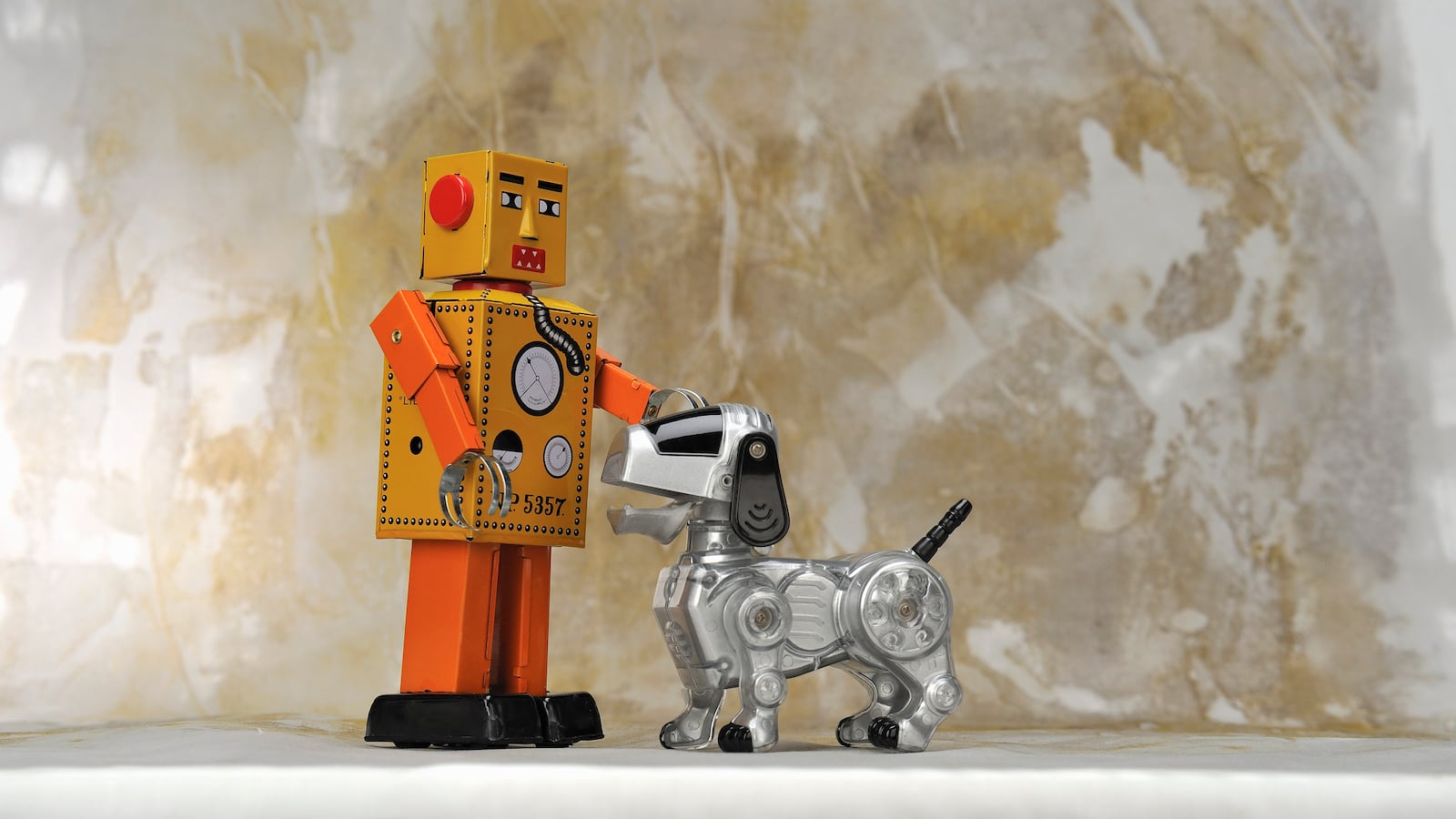You might love your pet—but have you ever thought to yourself that your furbaby is a bit too high maintenance in between walking and feeding it all the time? Well, great news: there's a robotic alternative that provides all the joy of having a real cat or dog without the hassle of keeping it, you know, alive.
In fact, robotic pets might even have the added benefit of improving the lives of the elderly through pet therapy, while also being cheaper and safer than the flesh-and-bone version.
In a paper published on July 20 in the Canadian Journal of Recreation Therapy, researchers at the University of Utah developed a process of using robotic pets as a part of therapy for dementia patients. Their protocol outlines exactly how to run a session using a robo-feline or robo-pup, including questions to ask the patients, session length, and ways to evaluate their interactions with the machine animal.

A companion cat from Joy For All.
Joy for All Companion Pets/ Ageless Innovation“Our protocol had questions like: Would you like to scratch the dog behind his ears? Would you like to pet him? Would you like to brush him?” Rhonda Nelson, a recreational therapy researcher at UofU, said in a press release. “And then we were evaluating how people responded to those different cues so that we could then provide some guidelines to people on how to have the most beneficial actions with these animals.”
The sessions begin with a therapist taking the animals out of carriers, and letting the patient choose which they would like to interact with. The patient can then pet its synthetic fur and listen to the robot as it simulates purring or barking noises. Meanwhile, the therapist asks them questions about their past with the hope of unlocking memories that the patient might have related to their own pets.
Robotic animals such as those from robotic pet therapy company Joy For All Companions can be bought at a fairly affordable price point too. For around $65 to $150, you can get yourself a robotic puppy, a cat, or even a bird companion. Since they’re synthetic, they’re also hypo-allergenic and can provide a safe alternative to introducing real animals to dementia patients.

Robotic pets like the ones offered by Joy For All could greatly enrich the lives of dementia patients.
Joy for All Companion Pets/ Ageless InnovationThe protocol offers a comprehensive set of guidelines for using such robo-pets in a therapeutic environment and was developed after two sessions with five elderly patients in long-term care facilities. It’s also worth noting that everyone involved was also clear that the pets weren’t real.
While the results of the sessions didn’t give a firm indication about whether or not robo-pet therapy could improve their cognitive functions or memory, all of the patients enjoyed the interactions. Some even spoke with and cooed over the robo-pets. The study’s authors believe that this engagement alone can be incredibly beneficial to the patients’ psychological well-being.
“People in long-term care facilities are in a position where everybody provides care to them,” Nelson explained, “and to be in the role where you are nurturing something else, or you are the caregiver I think is also psychologically very comforting for people to feel like, even though they know that it’s not live, they’re the person who’s giving love and compassion to something, and it’s responding.”




